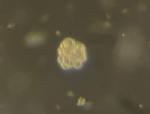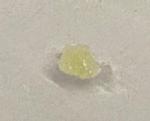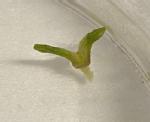Huidong Liu

Huidong Liu is the 2021 recipient of the Brewster Scholarship, which is awarded to an SLS PhD student in their second year of research whose work relates to crop improvement. The scholarship is funded by a generous donation in memory of Dr Jim Brewster, a former member of Wellesbourne staff.
Huidong's PhD project is looking at 'Manipulation of flowering time in Carrot by gene editing'.
He is supervised by Dr Stephen Jackson.
Project summary
Manipulation of flowering time in Carrot by gene editing
Carrot (Daucus carota L.) is a vegetable that is cultivated and consumed worldwide. Carrot is a biennial herbaceous species, and its nutrient accumulation occurs mainly during vegetative growth during the first year of the life cycle. As it is usually a biennial, carrot plants will bolt and flower in the second year after a vernalisation period of at least 6 weeks. Therefore, carrot breeding can be a lengthy process. Carrot lines that will reliably flower in a single year could speed up carrot breeding programmes. On the other hand, premature bolting (early flowering) can result in a complete loss of the commercial value of a carrot crop as bolting affects the growth of the storage tap root. Therefore, controlling flowering time is very important for carrot breeding and production.
Our main aim is to manipulate carrot flowering time by genome editing, then create two new types of carrots with altered flowering times: an annual carrot (no-vernalization needed for flowering), and a late-flowering (bolting resistant) carrot. For food crops, non-GM crops are more marketable than GM crops and there are fewer regulations to get them to market. Non-integrative CRISPR approaches (where no DNA is inserted into the plant genome) can cause small deletions that are similar to those that can occur naturally, and thus it has been suggested that plants produced in such a way may not be subject to GMO regulations. In this project, one of the non-integrative CRISPR approaches, the Cas9 protein-gRNA ribonucleoproteins (RNPs) method, was applied. Basic plant biology methods were also applied to support gene editing and plant regeneration. Ideally, after a process of protoplast isolation, transformation, and regeneration, we will obtain genome-edited varieties, which delayed or promoted flowering time.
|
protoplast |
micro-calli |
callus |
plantlet |
Carrot cells reproduction process (from left to right)




